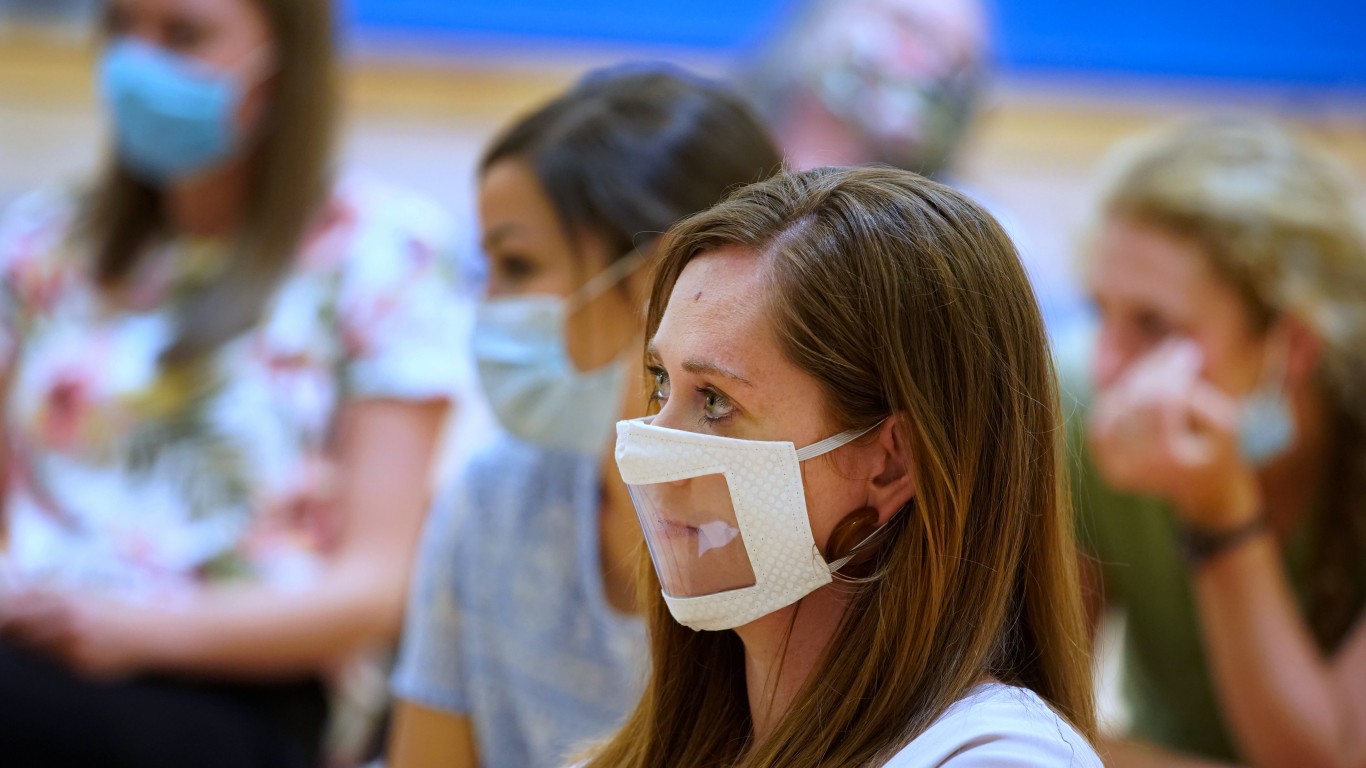Health and Healthcare
COVID-19: This Is the Worst State for Giving 2 Vaccine Doses

Published:

The pace at which COVID-19 is spreading across the United States has slowed considerably. Hospitalizations for the disease have dropped to their lowest level since mid-November. Nevertheless, the disease has killed 518,720 Americans, which is about 20% of the world’s total. Confirmed cases in the United States have risen to 28,897,871. The daily increases in these two numbers have dropped by half in just over six weeks.
The race to contain the disease as completely as possible has picked up momentum. The primary reason for optimism is the rate of increases in vaccinations. The Pfizer and Moderna vaccines have been joined by one from Johnson & Johnson.
The challenge of vaccinating the nation is the pace at which doses are available. President Donald Trump said the rate of vaccination would be rapid through the early part of 2021. That did not happen. Instead, the Biden administration has been left to catch up to expectations. It will not be easy. The administration said it will have 200 million new doses of vaccine by July.
So far, 15% of American adults have been given at least one dose of vaccine. Less than 8% have received two doses. Across the country, 96,402,490 doses have been delivered and 75,236,003 shots have been given.
The success of vaccination varies substantially from state to state. Alaska has given at least one dose to 20% of its adult population. A total of 13% have received two shots.
At the other end of the spectrum, Utah has given 12% of its adult population at least one dose, and nearly 6% two shots, which places it last among all states. Utah has received 820,950 doses and given 688,505 shots.
Utah has not been hit terribly hard compared to other states, such as California, New York and North Dakota. Utah has 371,235 confirmed cases and 1,935 fatal ones. The New York Times ranks it in the middle of states based on cases per 100,000 in the past seven days.
The government says vaccinations have been slow primarily because the data has run behind the reality of the pace and due to a lack of doses shipped to the state. The state has done several things to improve the rate at which it gives doses. Among them is to add more mobile locations.
The reasons for the slower-than-national pace probably don’t matter to most Utah residents. Like much of the balance of the country, they just want to be inoculated.
Click here to see which states are doing the best to roll out vaccines.
Thank you for reading! Have some feedback for us?
Contact the 24/7 Wall St. editorial team.